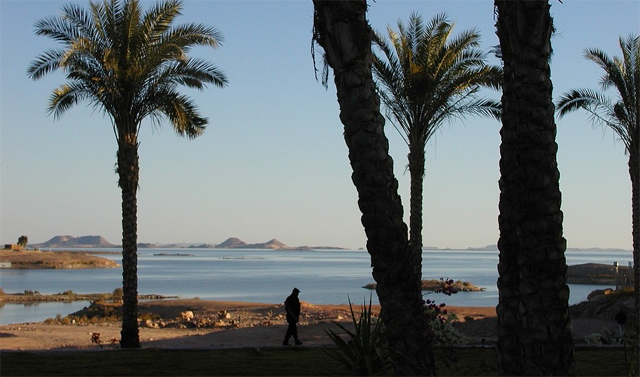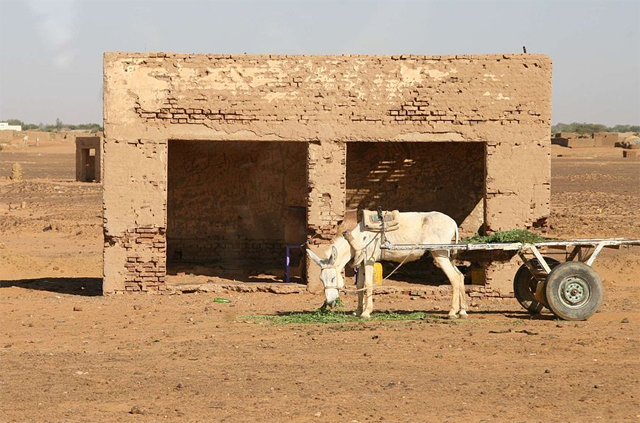The Egyptian government announced on June 19 the decision of President al-Sisi to provide compensation to Nubians for the homes and lands they had lost due to the construction of the Aswan High Dam in the mid-1960s. As might have been expected, the announcement has prompted a range of reactions from the Nubians themselves. Nubian opinions and other expert analyses were discussed in an article on July 10 in the Middle East news service, Al-Monitor.

The two-week period allowed by the government for Nubians to register their claims for compensation would have just expired on July 9. Al-Monitor announced that 3,851 people are eligible for compensation due to the reservoir, Lake Nasser, and 7,865 due to the construction of the High Dam, for a total of just over 11,700 claimants, according to the report.
Al-Monitor provided a helpful history of the flooding of the land of Old Nubia. The first displacement occurred in 1902 when a low dam was built to help control floods in the Nile Valley. In 1912 the dam was raised and in 1933 it was raised even higher. Each time the water level in the reservoir was raised, more villages up river were inundated. The High Dam, of course, was much higher and destroyed most of Old Nubia. About 135,000 Nubians were displaced from 44 villages roughly from October 1963 through June 1964. They were resettled onto dry, desert lands without having the benefit of Nile River water. Government promises to resettle them to lands nearer the river have never been kept.
Some Nubians interviewed by Al-Monitor, while aware that their historic claims are not being met, are nonetheless willing to accept the government’s offer of compensation as being better than nothing. Hussein Jabr, a 63-year-old Nubian man, said he is getting older and he “cannot afford to keep struggling.” He and his family live in the village of Balana, in Nasr al-Nuba, which is mostly composed of displaced Nubians.

His family owned 8 acres of farmland in Old Nubia plus two houses. The government is willing to compensate them for only 3 acres and one house. Jabr acknowledged that the compensation seems unfair but he expressed gratitude for anything he can get. “Why would we refuse financial compensation that we are entitled to? Let us take what we can get rather than waiting for something that will never come,” he said. On the other hand, he made it clear that the compensation does not absolve the government of its duty to meet the Nubian demands for the right of return to the Nile.
Wafa Ashri, an activist with the General Nubian Union, argued that the monetary compensation offered by the government does not provide an adequate resolution to their demands. Article 236 of the Egyptian constitution stipulates that the government must promulgate laws that develop areas to which the Nubians can be resettled, she said, and that provision should be implemented before monetary compensation is offered. She said that the people “want a place that preserves their Nubian heritage, customs and traditions, and that represents a social favorable environment for the Nubian cultural identity that they fear will be lost.”
Hamdi Suleiman, the head of the Nubian Union in Austria, made a similar argument—that compensation for houses and lands lost in Old Nubia doesn’t negate the rights of Nubians to resettle in their historic areas that are still accessible. It is in the best interests of the Egyptian government to have the Nubians maintain their heritage, identity and language, he maintained.

Al-Monitor spoke with Said Sadek, a professor of sociopolitical science at The American University in Cairo. He said that the government is stalling and making empty promises to the Nubians the same as they do to all other minorities. He said that if the government were to allow the Nubians to have access to their lands, they might have to meet the demands of other minorities—Copts. Shiites, people with differing sexual orientations—for their rights. The government is opposed to that for any of them. The professor assumed that the offer of compensation represents to the government only a temporary palliative to calm the Nubians.